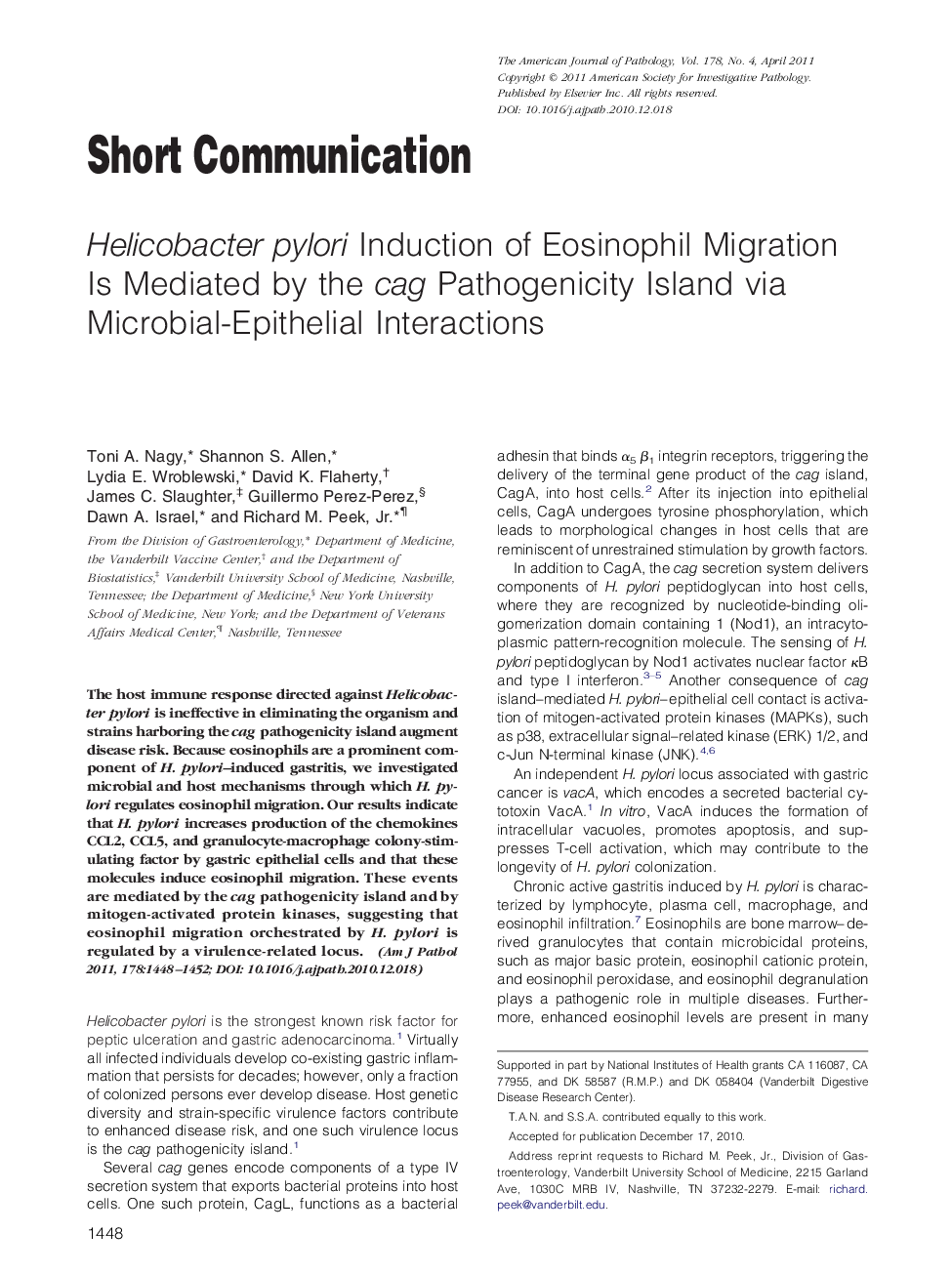| Article ID | Journal | Published Year | Pages | File Type |
|---|---|---|---|---|
| 5936006 | The American Journal of Pathology | 2011 | 5 Pages |
The host immune response directed against Helicobacter pylori is ineffective in eliminating the organism and strains harboring the cag pathogenicity island augment disease risk. Because eosinophils are a prominent component of H. pylori-induced gastritis, we investigated microbial and host mechanisms through which H. pylori regulates eosinophil migration. Our results indicate that H. pylori increases production of the chemokines CCL2, CCL5, and granulocyte-macrophage colony-stimulating factor by gastric epithelial cells and that these molecules induce eosinophil migration. These events are mediated by the cag pathogenicity island and by mitogen-activated protein kinases, suggesting that eosinophil migration orchestrated by H. pylori is regulated by a virulence-related locus.
